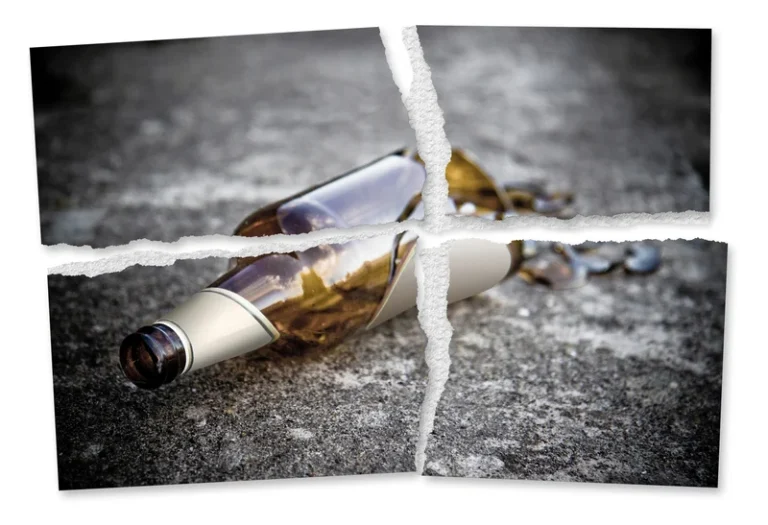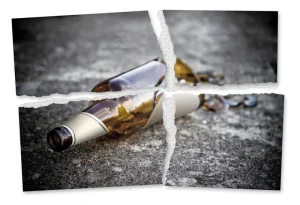
This includes beer, wine, and liquor, as well as products that contain alcohol such as rubbing alcohol and vanilla extract. Overall, do whatever you can to make yourself as comfortable as possible. If you’re sweating, place a cold towel on your forehead or on the back of your neck.
Treatment for Alcohol Addiction
This article discusses alcohol withdrawal, its symptoms, and potential complications. It also provides an overview of the alcohol withdrawal timeline process and when to discuss your drinking with your healthcare provider. Withdrawal symptoms typically subside within approximately 1-2 weeks after starting detox; however, this could take longer depending on the severity of your AUD. From there, you will be able to focus on other aspects of the recovery process such as different activities, therapies, counseling sessions and support options.

Factors That May Influence the Detox Timeline
Alcohol detoxification can be very unpleasant and even life-threatening, so it is always recommended to detox from alcohol under medical supervision. Generally, you may need treatment for alcohol misuse when you can no longer control the amount you drink or how long you drink. To learn more about when you may need help for alcohol misuse, visit our informational page on helping someone with an alcohol use disorder or take our alcohol misuse self-assessment. Alcohol withdrawal syndrome is a set of symptoms that occur when someone who is physically dependent upon alcohol suddenly stops drinking or drastically reduces their alcohol intake.
Alcohol and Drug Abuse Statistics (Facts About Addiction)
Some people avoid medically supervised rehab because they prefer natural remedies for alcohol withdrawal. Slowly tapering off alcohol https://ecosoberhouse.com/ is the safest way to naturally overcome alcohol withdrawal, and many at-home remedies can help you cope with mild withdrawal symptoms. However, medical treatment is necessary to treat major symptoms of withdrawal. If you have alcohol use disorder and want help, a healthcare provider can guide you to resources and rehabilitation programs to help you quit.
Drug detoxification

Medications for alcohol withdrawal typically include long-acting sedatives, particularly benzodiazepines like Librium. Other medications will be considered for other physical and mental health conditions. Alcohol Detox Since heavy alcohol use disrupts metabolism, hydration, and absorption of vital vitamins and minerals, detox programs help restore this balance. Sufficient hydration, nutrition, and Thiamine (vitamin B1) are essential during alcohol withdrawal. Some people are apprehensive to quit drinking because they’re nervous about the withdrawal symptoms experienced during alcohol detox. While some people may only be affected by minor effects of alcoholism, others may face extreme pain.

What is the treatment for alcohol withdrawal?
- Detox involves gradually clearing alcohol from your system while addressing withdrawal symptoms and preparing for long-term treatment.
- Outpatient detox involves regularly following up with a health care professional before and during detox.
- During the initial stages of withdrawal, you may participate in activities that distract you from symptoms that begin occurring.
- Prepare a playlist of your favorite songs or movies to pass the time.
When that person cuts out alcohol, there is a period when their brain hasn’t yet received the message and still overproduces the stimulating chemicals. With alcohol out of the equation, though, these chemicals cause withdrawal symptoms. Similar to the first full day of detox, the most painful symptoms will continue into the second day. Hallucinations and panic attacks are common during this time as your body rids alcohol from its system.
How Long To Detox From Alcohol?
- These programs offer ongoing support, therapy, and strategies to help individuals maintain sobriety and prevent relapse.
- Alcohol stays in your systemfor varying amounts of time based on your body weight, metabolism and how many drinks you’ve had.
- Over time, liver function improves, brain chemistry stabilizes, and physical health begins to recover.
- There are many different types of alcohol detox programs, each with varying lengths and intensities.
Gradual reduction, medication-assisted treatment, counseling, and joining support groups like AA can help maintain long-term sobriety. At the same time, it reduces the activity of excitatory N-methyl-D-aspartate (NMDA) receptors. Because GABA plays a central role in suppressing excitability in the brain, withdrawal treatment relies on depressant medications that amplify GABA’s effects. This often includes the use of medications to address persistent symptoms such as anxiety, insomnia, or mood swings. Stabilization ensures the patient is medically stable and ready to transition into long-term care. Close medical monitoring is crucial during the detox process, especially in cases where severe symptoms are present.

- Doctors estimate that 3 to 5 percent of people will have severe symptoms.
- How long alcohol stays in a person’s body depends on how much they have drunk and how quickly.
- For example, if the primary focus is treating a mental health condition rather than alcohol dependence, detoxification may be considered an essential first step.
- You should talk to a doctor about the safest way to detox if you experience any withdrawal symptoms when you stop drinking.
- Some people try to detox at home without professional help, but this can increase the risk of dangerous withdrawal symptoms.
Phenibut is used in Eastern Europe for alcohol detoxification as Alcoholics Anonymous it has sedative and anxiolytic effects. By Sarah Bence, OTR/LBence is an occupational therapist with a range of work experience in mental healthcare settings. Millions of people join support groups to help stop drinking and stay stopped. Studies show support groups play an instrumental role in helping people develop healthy social networks that result in continued sobriety.



